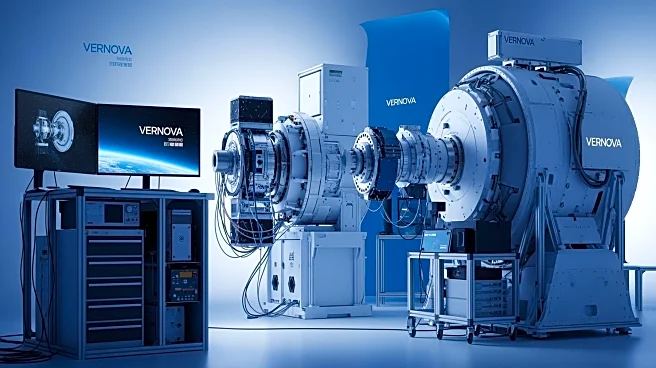What's Happening?
Jim Cramer, a prominent CNBC analyst, has expressed optimism about the future prospects of GE Aerospace and GE Vernova. According to Cramer, these companies are well-positioned to benefit from global trade
dynamics, particularly in light of trade tensions involving the United States. GE Aerospace, which manufactures jet engines and airplane parts, has shown growth in its commercial engines and services segment. The company has also improved its supply chain, which is crucial given the current tariff environment. Meanwhile, GE Vernova, which focuses on energy solutions, has expanded its electrification segment by acquiring Prolec, a company that produces equipment for the electric grid. This acquisition is expected to support the growing demand for electricity, driven by data center expansions. Both companies have experienced significant stock price increases this year, despite initial sell-offs following their earnings reports.
Why It's Important?
The success of GE Aerospace and GE Vernova is significant for several reasons. Firstly, their growth reflects the broader economic trends in aerospace and energy sectors, which are critical to global trade and infrastructure development. GE Aerospace's ability to secure large orders, such as Korean Air's purchase of Boeing aircraft equipped with GE engines, underscores its competitive position in the aerospace market. On the other hand, GE Vernova's focus on electrification and nuclear power positions it as a key player in the transition to sustainable energy sources. This is particularly relevant as countries seek to reduce carbon emissions and invest in renewable energy. The performance of these companies also highlights the potential for U.S. industries to thrive amid international trade challenges, providing a boost to the domestic economy.
What's Next?
Looking ahead, GE Aerospace and GE Vernova are expected to continue capitalizing on their respective market opportunities. GE Aerospace may benefit from increased demand for aircraft as global travel recovers, while GE Vernova's investments in electrification and nuclear power could yield long-term returns as energy infrastructure evolves. Investors and industry stakeholders will likely monitor these developments closely, as they could influence broader market trends and investment strategies. Additionally, the companies' ability to navigate supply chain challenges and geopolitical factors will be crucial in sustaining their growth trajectories.











